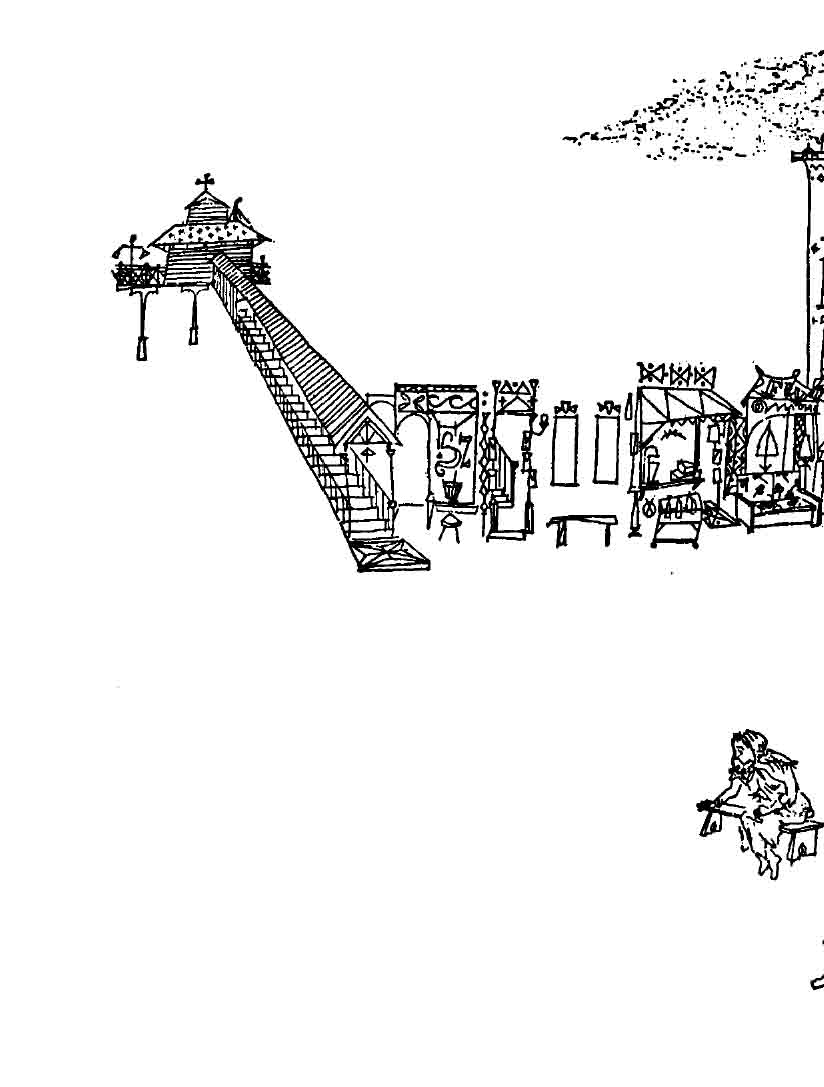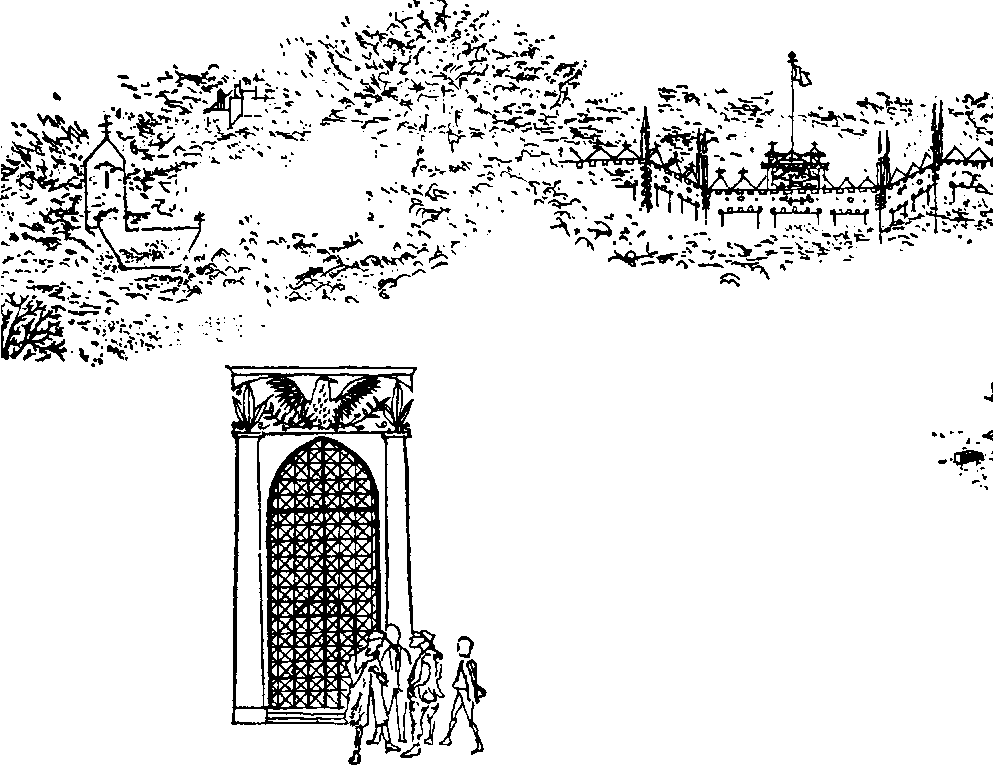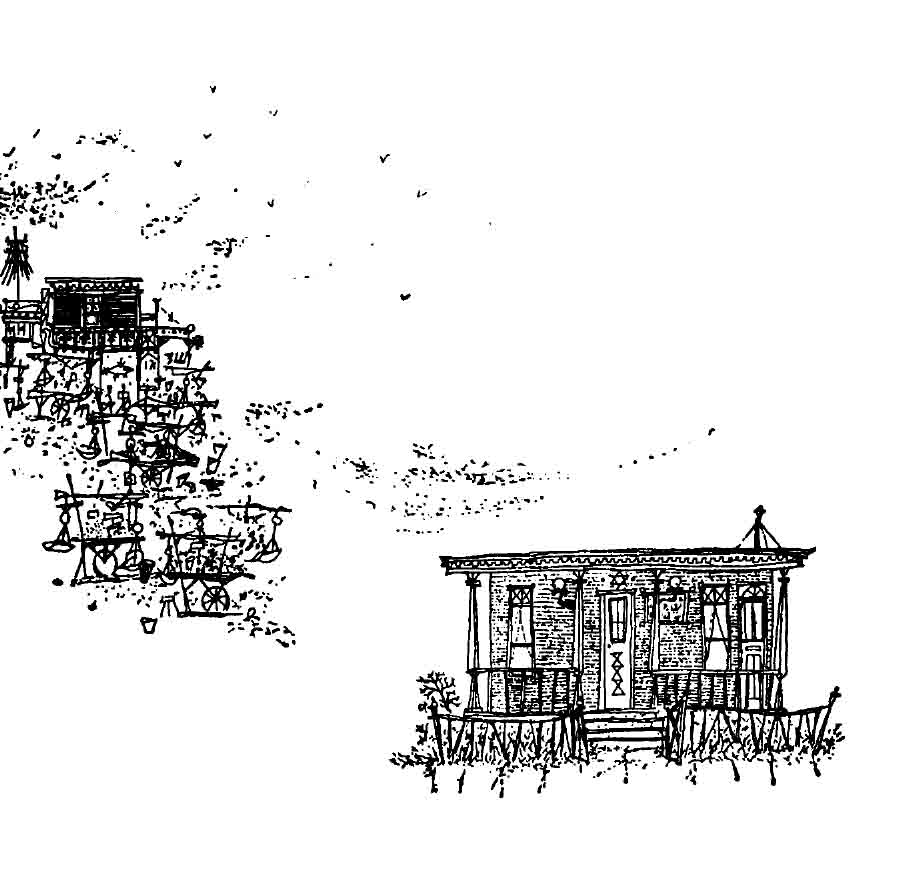A Walker in the City
Read A Walker in the City Online
Authors: Alfred Kazin

 
FROM THE SUBWAY TO THE SYNAGOGUE
SUMMER: THE WAY TO HIGHLAND PARK
Copyright 1951, 1946 by Alfred Kazin
Copyright renewed 1979, 1974 by Alfred Kazin
All rights reserved. No part of this publication may be reproduced
or transmitted in any form or by any means, electronic or mechanical,
including photocopy, recording, or any information storage and
retrieval system, without permission in writing from the publisher.
Requests for permission to make copies of any part of the work
should be submitted online at
www.harcourt.com/contact
or mailed to
the following address: Permissions Department, Harcourt, Inc.,
6277 Sea Harbor Drive, Orlando, Florida 32887-6777.
ISBN 978-0-15-694176-1 (Harvest: pbk.)
Printed in the United States of America
Z Y X W V
Frontispiece photograph reproduced from
Camera Work
, collection of
The Museum of Modern Art, New York.
FOR MICHAEL KAZIN
FROM THE SUBWAY TO THE SYNAGOGUEExcerpts from this book have appeared in
Commentary
and the
New Yorker,
in somewhat different form, and are reprinted here by kind permission of the editors of these magazines.


Â
In every cry of every man,
In every infant's cry of fear,
In every voice, in every ban,
The mind-forg'd manacles I hear.
WILLIAM BLAKE:
London
Â

E
VERY TIME
I go back to Brownsville it is as if I had never been away. From the moment I step off the train at Rockaway Avenue and smell the leak out of the men's room, then the pickles from the stand just below the subway steps, an instant rage comes over me, mixed with dread and some unexpected tenderness. It is over ten years since I left to live in "the city"âeverything just out of Brownsville was always "the city." Actually I did not go very far; it was enough that I could leave Brownsville. Yet as I walk those familiarly choked streets at dusk and see the old women sitting in front of the tenements, past and present become each other's faces; I am back where I began.
It is always the old women in their shapeless flowered housedresses and ritual wigs I see first; they give Brownsville back to me. In their soft dumpy bodies and the unbudging way they occupy the tenement stoops, their hands blankly folded in each other as if they had been sitting on these stoops from the beginning of time, I sense again the old foreboding that all my life would be like this.
Urime Yidn. Alfred, what do you want of us poor Jews?
The early hopelessness burns at my face like fog the minute I get off the subway. I can smell it in the air as soon as I walk down Rockaway Avenue. It hangs over the Negro tenements in the shadows of the El-darkened street, the torn and flapping canvas sign still listing the boys who went to war, the stagnant wells of candy stores and pool parlors, the torches flaring at dusk over the vegetable stands and pushcarts, the neon-blazing fronts of liquor stores, the piles of
Halvah
and chocolate kisses in the windows of the candy stores next to the
News
and
Mirror,
the dusty old drugstores where urns of rose and pink and blue colored water still swing from chains, and where next door Mr. A.'s sign still tells anyone walking down Rockaway Avenue that he has pants to fit any color suit. It is in the faces of the kids, who before they are ten have learned that Brownsville is a nursery of tough guys, and walk with a springy caution, like boxers approaching the center of the ring. Even the Negroes who have moved into the earliest slums deserted by the Jews along Rockaway Avenue have been infected with the damp sadness of the place, and slouch along the railings of their wormy wooden houses like animals in a cage. The Jewish district drains out here, but eddies back again on the next street;
they
have no connection with it. A Gypsy who lives in one of the empty stores is being reproached by a tipsy Negro in a sweater and new pearl-gray fedora who has paid her to tell his fortune.
You promis' me, didnja? Didnja promis', you lousy f...?
His voice fills the street with the empty rattle of a wooden wheel turning over and over.
The smell of damp out of the rotten hallways accompanies me all the way to Blake Avenue. Everything seems so small here now, old, mashed-in, more rundown even than I remember it, but with a heartbreaking familiarity at each door that makes me wonder if I can take in anything new, so strongly do I feel in Brownsville that I am walking in my sleep. I keep bumping awake at harsh intervals, then fall back into my trance again. In the last crazy afternoon light the neons over the delicatessens bathe all their wares in a cosmetic smile, but strip the street of every personal shadow and concealment. The torches over the pushcarts hold in a single breath of yellow flame the acid smell of half-sour pickles and herrings floating in their briny barrels. There is a dry rattle of loose newspaper sheets around the cracked stretched skins of the "chiney" oranges. Through the kitchen windows along every ground floor I can already see the containers of milk, the fresh round poppy-seed evening rolls. Time for supper, time to go home. The sudden uprooting I always feel at dusk cries out in a crash of heavy wooden boxes; a dozen crates of old seltzer bottles come rattling up from the cellar on an iron roller. Seltzer is still the poor Jew's dinner wine, a mild luxury infinitely prized above the water out of the faucets; there can be few families in Brownsville that still do not take a case of it every week. It sparkles, it can be mixed with sweet jellies and syrups; besides, the water in Europe was often unclean.
In a laundry window off Dumont Avenue a printed poster with a Star of David at the head proclaims solidarity with "
our magnificent brothers in Palestine
"A fiery breath of victory has come to Brownsville at last! Another poster calls for a demonstration against evictions. It is signed by one of those many subsidiaries of the Communist Party that I could detect if it were wrapped in twenty layers of disguise. "W
ORKERS AND PEOPLE OF
B
ROWNSVILLE
...!" Looking at that long-endured word
Landlord,
I feel myself quickening to the old battle cries.
And now I go over the whole route. Brownsville is that road which every other road in my life has had to cross.
Â
When I was a child I thought we lived at the end of the world. It was the eternity of the subway ride into the city that first gave me this idea. It took a long time getting to "New York"; it seemed longer getting back. Even the I.R.T. got tired by the time it came to us, and ran up into the open for a breath of air before it got locked into its terminus at New Lots. As the train left the tunnel to rattle along the elevated tracks, I felt I was being jostled on a camel past the last way stations in the desert. Oh that ride from New York! Light came only at Sutter Avenue. First across the many stations of the Gentiles to the East River. Then clear across Brooklyn, almost to the brink of the ocean all our fathers crossed. All those first stations in BrooklynâClark, Borough Hall, Hoyt, Nevins, the junction of the East and West Side express linesâtold me only that I was on the last leg home, though there was always a stirring of my heart at Hoyt, where the grimy subway platform was suddenly enlivened by Abraham and Straus's windows of ladies' wear. Atlantic Avenue was vaguely exciting, a crossroads, the Long Island railroad; I never saw a soul get in or out at Bergen Street; the Grand Army Plaza, with its great empty caverns smoky with dust and chewing-gum wrappers, meant Prospect Park and that stone path beside a meadow where as a child I ran off from my father one summer twilight just in time to see the lamplighter go up the path lighting from the end of his pole each gas mantle suddenly flaring within its corolla of pleated paperâthen, that summer I first strayed off the block for myself, the steps leading up from the boathouse, the long stalks of grass wound between the steps thick with the dust and smell of summerâthen, that great summer at sixteen, my discovery in the Brooklyn Museum of Albert Pinkham Ryder's cracked oily fishing boats drifting under the moon. Franklin Avenue was where the Jews beganâbut all middle-class Jews,
alrightniks,
making out "all right" in the New World, they were still Gentiles to me as they went out into the wide and tree-lined Eastern Parkway. For us the journey went on and onâpast Nostrand, past Kingston, past Utica, and only then out into the open at Sutter, overlooking Lincoln Terrace Park, "Tickle-Her" Park, the zoo of our adolescence, through which no girl could pass on a summer evening without its being understood forever after that she was "in"; past the rickety "two-family" private houses built in the fever of Brownsville's last real-estate boom; and then into Brownsville itselfâSaratoga, Rockaway, and home. For those who lived still beyond, in East New York, there was Junius, there was Pennsylvania, there was Van Siclen, and so at last into New Lots, where the city goes back to the marsh, and even the subway ends.
Yet it was not just the long pent-up subway ride that led me to think of Brownsville as the margin of the city, the last place, the car barns where they locked up the subway and the trolley cars at night. There were always raw patches of unused city land all around us filled with "monument works" where they cut and stored tombstones, as there were still on our street farmhouses and the remains of old cobbled driveways down which chickens came squealing into our punchball gamesâbut most of it dead land, neither country nor city, with that look of prairie waste I have so often seen on my walks along the fringes of American cities near the freight yards. We were nearer the ocean than the city, but our front on the ocean was Canarsieâin those days the great refuse dump through which I made my first and grimmest walks into the cityâa place so celebrated in New York vaudeville houses for its squalor that the very sound of the word was always good for a laugh. C
AN-NARR-SIE
! They fell into the aisles. But that was the way to the ocean we always took summer eveningsâthrough silent streets of old broken houses whose smoky red Victorian fronts looked as if the paint had clotted like blood and had then been mixed with sootâpast infinite weedy lots, the smell of freshly cut boards in the lumber yards, the junk yards, the marshland eating the pavement, the truck farms, the bungalows that had lost a window or a door as they tottered on their poles against the damp and the ocean winds. The place as I have it in my mind still reeks of the fires burning in the refuse dumps. Farms that had once been the outposts of settlers in Revolutionary days had crumbled and sunk like wet sand. Canarsie was where they opened the sluice gates to let the city's muck out into the ocean. But at the end was the roar of the Atlantic and the summer house where we stood outside watching through lattices the sports being served with great pitchers of beer foaming onto the red-checked tablecloths. Summer, my summer! Summer!